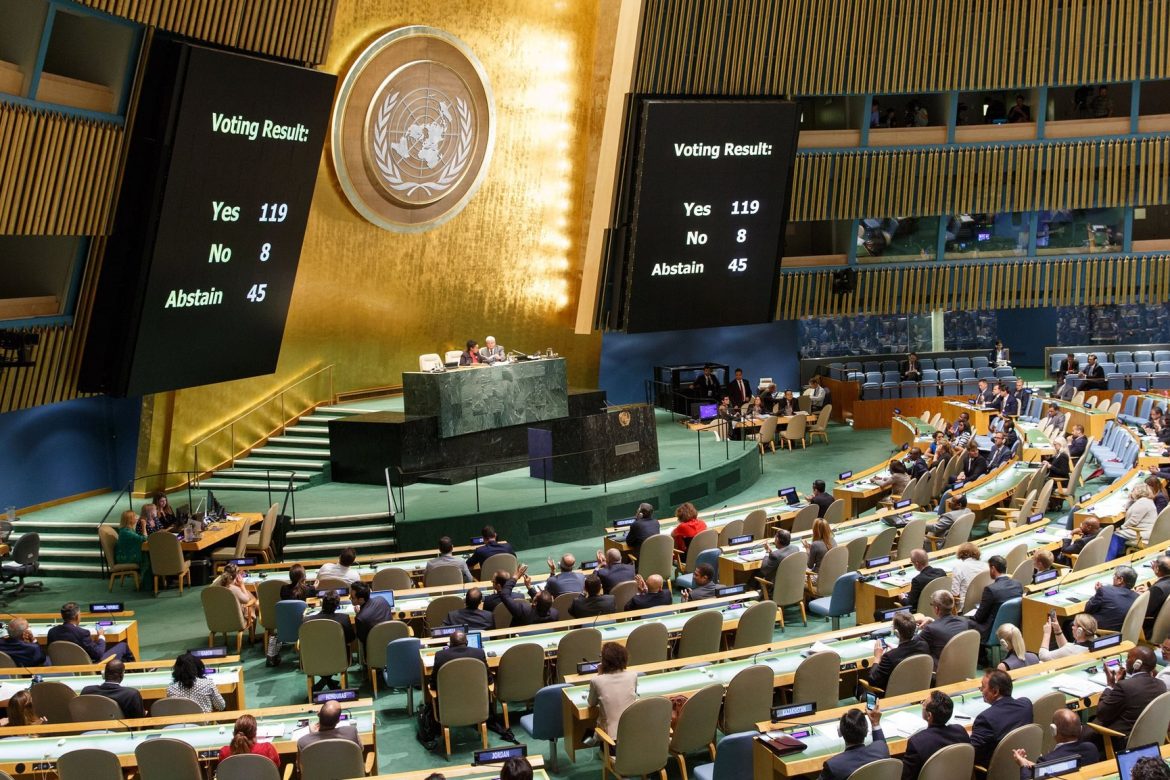This material belongs to: Huffington Post.
New Delhi, 11 December 2017–Joining hands with UNODC South Asia on the International Anti Corruption Day, South Asia’s leading changemakers emphasised the need for zero tolerance towards corrupt practices and called for stronger and united public action. In exclusive interactions with UNODC’s Communications Officer, Samarth Pathak, public representatives and icons from politics, business, governance, media and the civil society shared their insights and reflections on the impact of corruption and ways to address this threat in a special feature, “Voices against Corruption”.

Welcoming the initiative, Mr. Arvind Kejriwal , Chief Minister of Delhi, said, “From the very first day, my government launched a tirade against corruption by launching Anti-Corruption Helpline for the ease and use of the people and thereafter, an Anti-Corruption Campaign to tell the people about number of those booked for corruption to further send a message of fear in the minds of the corrupt and bribe takers. My Government is pushing for establishing transparency, ensuring good governance and for protecting the whistle blowers.”
Stressing that development can only be brought by being united against corruption for development, peace and security, Mr. Sidharth Nath Singh , Minister of Health, Government of Uttar Pradesh, asserted, “It is important to building an effective government that has strong enforcement of law, ensures punishment of corrupt and that ends impunity. Citizens should also empower themselves and their communities, thus monitoring corrupt practices and bringing initiatives that lead to detection, reduction & elimination of corruption.”
Suggesting three ways to root out corruption, Mrs. Meenakshi Lekhi, Member of Parliament, said, “First would be increasing transparency and accountability of the political and the administrative system by way of making such laws, which impose duty on the public servant to act in a timely fashion and reduce corruption. Second is use of Information Technology, like we have done it in the case of AADHAAR, connected with all subsidies and government schemes. Third could be electoral reforms, because when corruption exists at the highest level, it will percolate down below and in every system.”
Identifying the use of technology and low tax regime as ways to combat graft, Mr. Gaurav Gogoi, Member of Parliament, said, “South Asia is home to 24.75 percent of world population with median age of 26.4 years. Moreover, more than 40 per cent of the world’s poor live in South Asia. With a young population, it becomes important to discuss and limit corruption in the region. There is a common trend of opacity in public institutions, bribery, weak contract enforcement and low ease of doing business, all of which perpetuate corruption. For the region to grow socially and economically, it is inevitable that the region invests concerted resources to bring itself out of this endemic.”
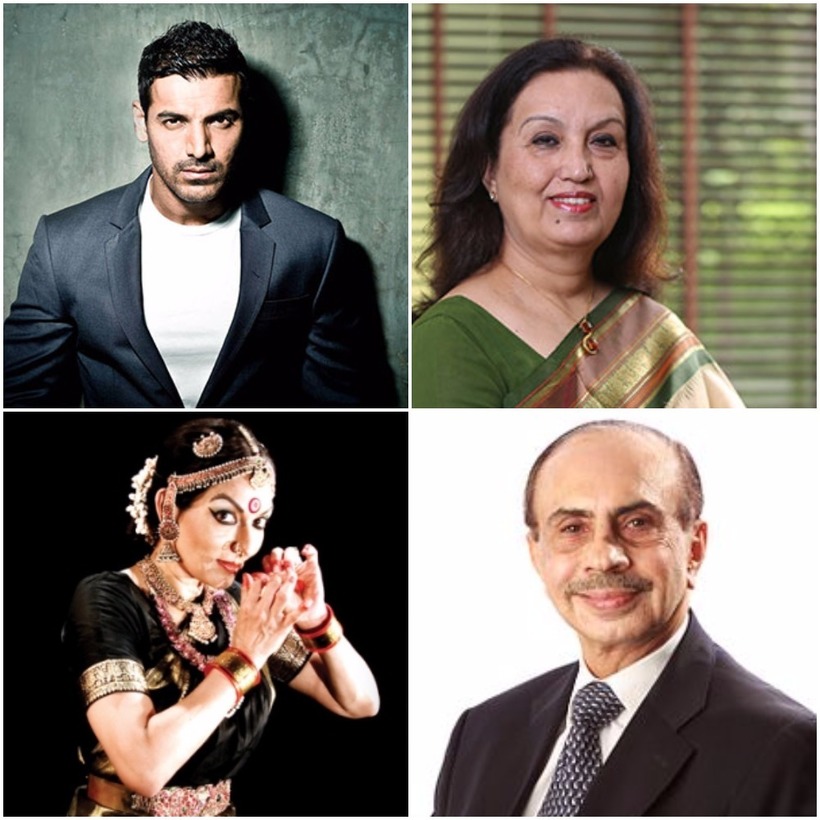
Reflecting on the impact of corruption on businesses and the way forward, Mr. Adi Godrej, Chairman, Godrej Group, asserted, “Governments can combat corruption by reducing controls, permissions of applications should be on the internet and if not okayed within two weeks should be deemed to be okay. Citizens should strongly resist all forms of corruption as best as possible.”
Mr. John Abraham, Bollywood Actor, called for collective action, saying, “Corruption exists because there is an erosion of values, ethics and goodness in people today. We must unite against corruption and the corrupt, and commit to end it wherever we can. Remember: those who give bribes are also as guilty as those receiving them. So, stand your ground, and defeat corruption by speaking out against it in one voice!”
Ms. Mallika Sarabhai, Classical Dance Exponent and Activist, said, “Personally, we can start by stopping bribes that we give to make things work faster, like jumping a queue or getting a test done earlier. The judicial system needs to be one where the big scams, usually involving people in power, are dealt with meticulously, and publicly, and that the nation sees that the powerful are being punished. This sets an important bench mark.”
Calling corruption a “cancer”, Mrs. Mohini Daljit Singh, CEO, Max India Foundation (India), said, “Leakage of funds diverts money from projects resulting in poor implementation if implemented at all. With bribery project funds go into wrong hands; personal interest takes the place of national interest. Corruption has a deep impact on peace because all conflict starts with economic inequalities. The ‘have-nots” are forced into aggression when they see a few benefiting through illegal means—at their cost—and getting away with it.”
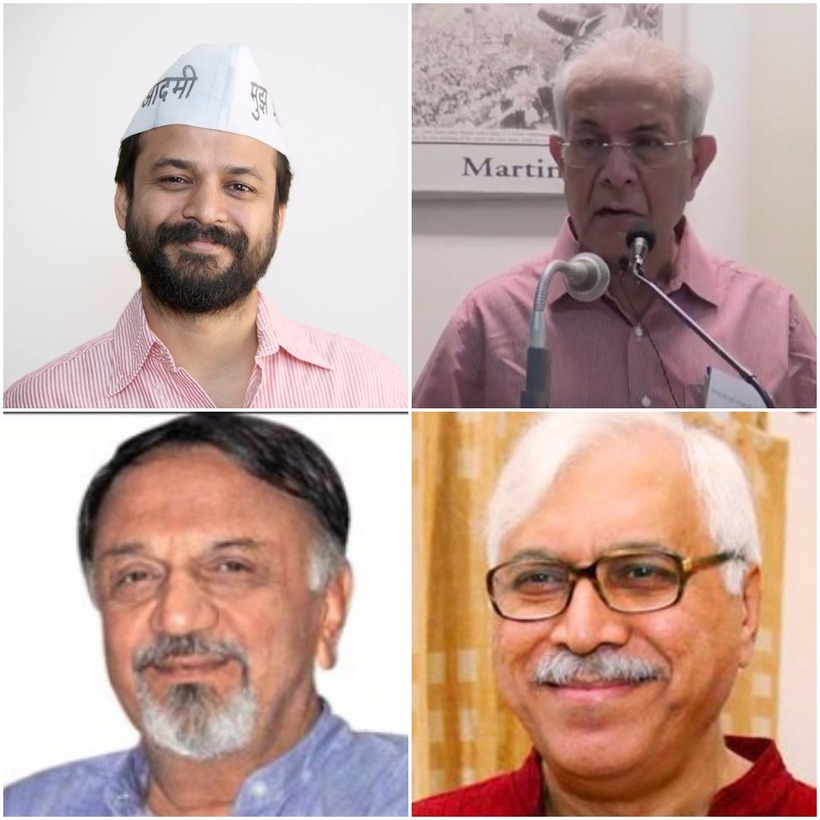
Dr. S.Y. Quraishi, Former Chief Election Commissioner (India), underscored the importance of electoral reforms. “I believe that elections are the biggest source of corruption in India. It is obvious that when candidates spend crores of rupees in campaigning, they will seek to recover the cost one way or the other. I firmly believe that there is a need to curb election related corruption. Public funding of political parties will be a step in the right direction. I also believe that the best way to end corruption is to reduce human interface between citizens and the government functionaries,” he said.
Mr. Shailesh Gandhi, Former Central Informational Commissioner (India), said, “Citizens and governments must strive to reduce arbitrariness and create a system which would deliver within fixed time. Computerized, paperless working in government could facilitate transparency if almost all the files and working were displayed on the website each day. Almost all dashboards of internal working should accessible by citizens.”
Emphasising the need to curtail vested interests, Mr. Wajahat Habibullah, Former Central Information Commissioner pushed for effective legislation to address corruption. “There must be related and effective legislation, for instance, a statutory right to information; civil society must remain constantly vigilant to ensure that authority adheres consistently to the principle of accountability and transparency; governance must be treated as service to the public service, not simply management of public services and civil servants trained to conform to this,” he said.
Mr. Ashish Khetan, Vice Chairman, Delhi Dialogue and Development Commission and Legislator highlighted the crucial link between corruption and communal and divisive forces. “It is often seen that corruption and communalism make ideal bedfellows. It is in the interest of corrupt elements to keep the people mired in mutual discard and animosity, by dividing them along narrow identities. In the process, peace is also imperiled. Citizens should hold their government accountable to election promises and seek periodical report cards from their governments. In turn the government should place its report cards before the people. Citizens should also track the personal wealth of their representatives and demand full account of donations received by the political parties,” he said.
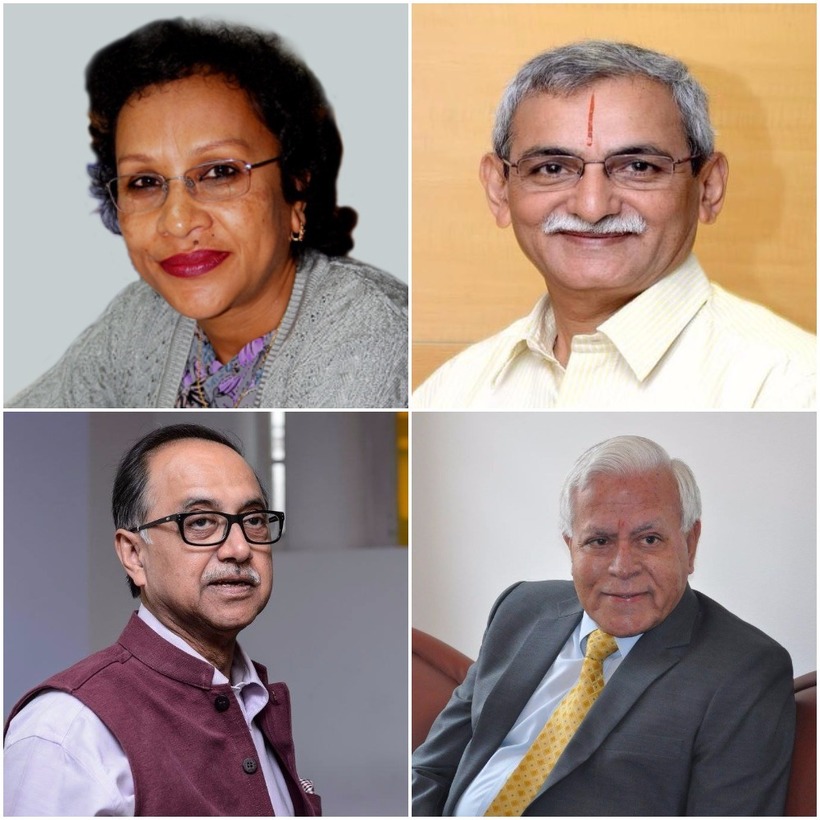
Giving the governance perspective, Mr. KV Chowdary, Central Vigilance Commissioner, said, “Corruption threatens social, political and economic security of a nation. Governments need to continuously review the existing systems, to eliminate discretion, make them simpler, efficient and user friendly through digitization, automation so that goods and services are available to the public easily.”
Sharing the viewpoint from the law enforcement perspective, Mr. Neeraj Kumar, Former Commissioner of Delhi Police, asserted, “Firstly, citizens need to come forward and expose the corrupt elements in the government and people in authority. Secondly, the government needs to create a system of responsive anti corruption agency which can react promptly and effectively. Thirdly, the laws should be strong and deterrent with speedy trial and punishment. Without the citizens and the government working in tandem corruption can never be fought.”
Ms. Patricia Mukhim, Editor of The Shillong Times, reflected on the impact of corruption in India’s Northeast region. “In tribal societies, corruption creates societal divides in otherwise egalitarian societies. There is rapid erosion of social capital and this gives rise to violence and conflict as extortion is on the rise. Those who extort use corruption in high places as an alibi. Citizens need to have a moral character that can resist corruption. They can use the RTI route to find out how development funds are spent and file PILs against corrupt politicians and bureaucrats,” she said.
Mr. Ashok Sajjanhar, Former Ambassador of India to Kazakhstan, Sweden and Latvia termed corruption as ‘one of the most invidious ills afflicting the human society and polity today’. Corruption should not be considered to be limited only to financial aspects although that is one of the most pervading aspects, but should be seen to be extending to ethical, moral and spiritual fields as well.It is necessary to frame appropriate rules and laws so that those who are indulging in such practices are caught speedily and punished quickly after following the due process of law. The moral strands of society particularly of the youth and young students in schools needs to be strengthened through education and through suitable programmes and activities. Special focus should be placed on teaching children through their schools so that they grow up as upright, honest, principled and righteous individuals. Civil society groups should also be vigilant so that corrupt practices in government offices are quickly unearthed and expeditious action taken against the erring individuals.”
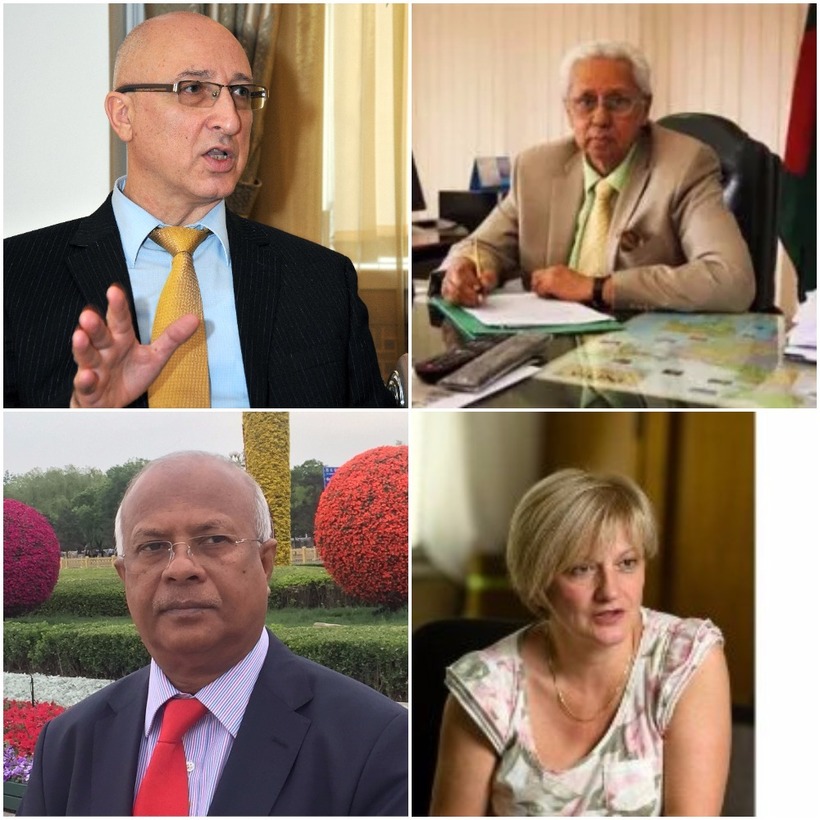
In a special message, Mr. Sergey Kapinos, UNODC South Asia Representative asserted, “As the custodian of the UN Convention against Corruption (UNCAC), UNODC is committed to working with governments, corporates, civil society, media and other stakeholders to address the issue of corruption. Our failure to collectively respond to this challenge stands to impact the 2030 Agenda for Sustainable Development. We must push for greater transparency and accountability from the government and businesses, support and enable good governance, demand high ethical standards from officials and protect the whistle blowers. By working side by side, we can support governments in implementing anti-graft legislations and policies, enhance the governance systems, encourage corporates to embrace ethical and transparent business practices, urge criminal justice institutions to bring in meaningful reforms: in essence, spearhead a global revolution in minds towards justice, transparency and honesty.”
Mr. Iqbal Mahmood, Chairman, Anti-Corruption Commission (Bangladesh) provided an overview of the impact of corruption in Bangladesh: “Corruption is one of dominant factors for which country like Bangladesh is still ranked at the bottom among countries surveyed on ‘Ease of doing Business’. Through use of punitive measures such as inflicting punishment and imposing penalty on corrupt persons, degree of corruption may be restrained if not eliminated. This is direct approach through enforcement. But on top of enforcement measures preventive actions should be taken to help corruption eradicated from our society. Preventive actions include measures such as building moral character of officials and systemic development of institutions.”
Ms. Zorana Markovic, Regional Anti-Corruption Adviser, UNODC, said, “To fight this phenomenon successfully and comprehensively, governments need to cooperate with all segments of a society and to seek wide coalition of forces gathered on the common goals. Civil society organisations are the natural ally in these efforts and their primary role is in awareness raising actions and sensitisation of society to zero -tolerance to corruption. Public and outreach campaigns, use of modern technologies and social media platform that appeal to younger generation will help spreading the messages to the widest levels of population. Educational and training programme that will use mass media will help in promoting strategic messages to citizens on government actions as will any incentive to enable wide access to public information and transparent decision-making process.”
Mr. Syed Muazzem Ali, High Commission of Bangladesh to India, highlighted Bangladesh’s experience in combating corruption, saying, “Our Government remains committed to adhere to good governance and enhance transparency and accountability in all sectors. Our current government has taken an initiative to transform Bangladesh into “Digital Bangladesh” with advancement of technology and automation of services which is expected to curb corruption drastically. Our people now have got more access to information and benefits of e-governance. Besides, there has been a massive awareness campaign against corruption. Our government has revised the pay scale of government services to discourage corruption. We also promulgated Anti-Corruption Commission Act in 2004 and formed the Anti-Corruption Commission (ACC) which is a statutory independent corruption prevention and corruption detective body of the State.”

Sharing experiences from Bhutan, Ms. Kinley Yangzom, Chairperson, Anti-Corruption Commission of Bhutan, said, “Bhutan, despite being one of the smallest countries in the world, has come a long way in fostering a holistic socio-economic development guided by the philosophy of Gross National Happiness. However, with rapid socio-economic development where Bhutan prepares to graduate from LDC status and with increasing investments for development activities, Bhutan has become more vulnerable to corruption. Political will is a must in the fight against corruption. Words must be supported by action. There must be collective effort in building awakened citizenry that upholds the principles and values of ethics, integrity and professionalism in one’s conduct, actions and dealings.”
Reflecting on UNODC’s focus on corruption, Mr. Yogesh Tamang, Member of Parliament and Chairman, Good Governance Committee (Bhutan), said, “Unity in each section of community and solidarity of all the citizens at the national level against corruption ensure peace and security in a country. Corruption takes root and different forms in policy formulation, and through practice of regionalism, communalism, favouritism and nepotism. Following rule of law is a fundamental approach in ensuring transparency, equity and justice. Good governance, therefore, plays critical role in guaranteeing justice and equity in the country. Therefore, the UNODC theme is wholly appropriate for South Asia.”
The International Anti-Corruption Day provided a unique opportunity to recognize this very important threat to peace and SDGs. Corruption is indeed a major impediment to sustainable development and building effective institutions, as it weakens democracy and the rule of law and allows organised crime, terrorism and other security threats to thrive. Corruption is now endemic in many spheres of life, affecting businesses, education, governance, criminal justice, public welfare and healthcare, among others. No country or region is free from this crime. And the common citizens, especially the poor, are forced to pay the biggest price for corruption. It is therefore vital to stand united against corruption for development, justice and security.
(Samarth Pathak is a New Delhi-based public advocacy specialist with a keen interest in human rights, international relations, politics and SDGs. His writings have appeared in The Guardian, Reuters Alertnet, Dawn, The Kashmir Times, Hardnews and The Asian Age. Views expressed are personal. Connect on Facebook and Twitter.)

